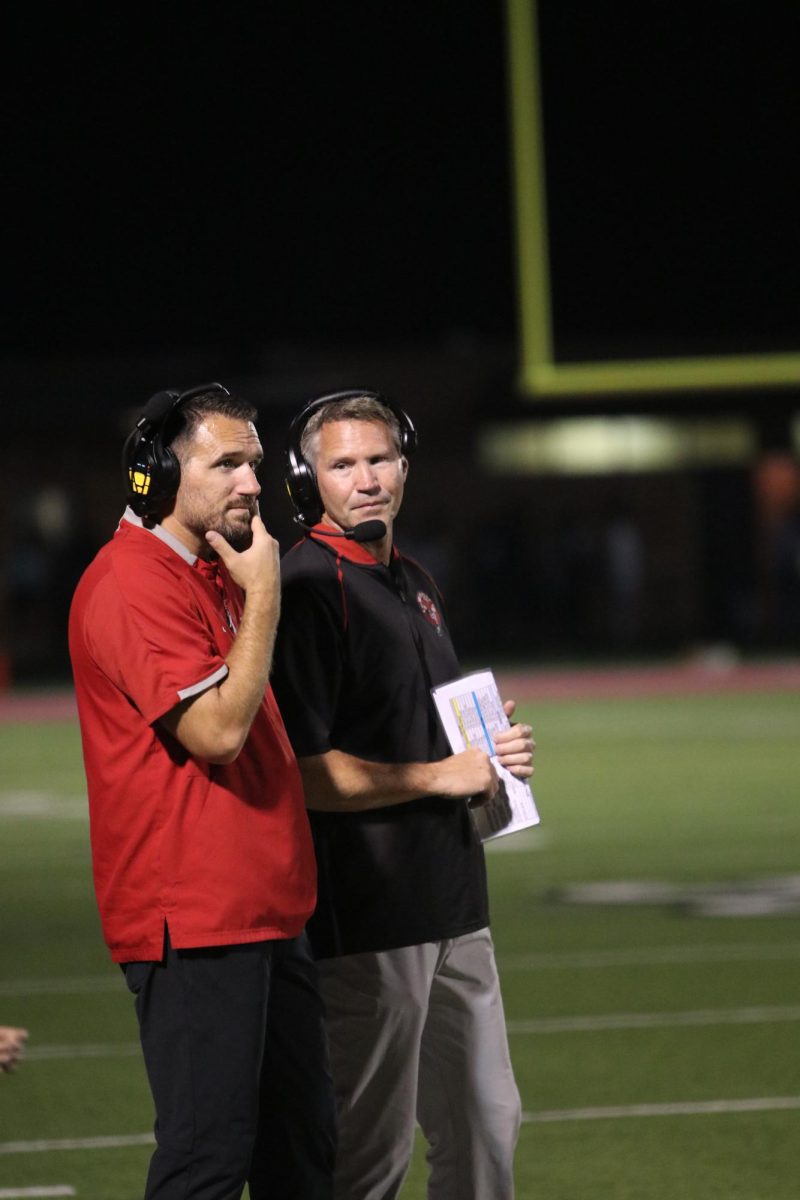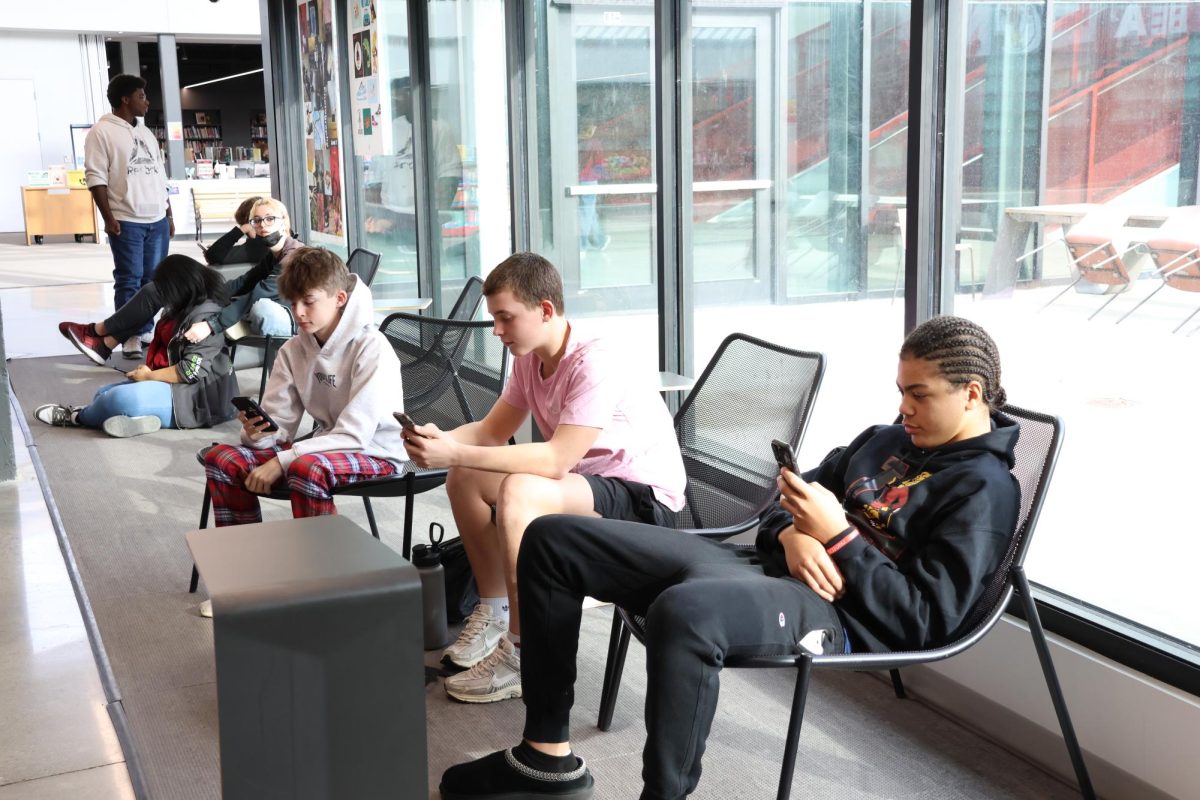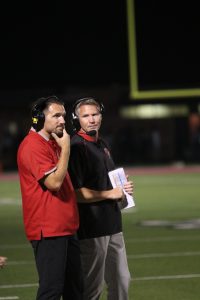Kansas Legislature forced to raise school budget again
The Kansas capitol dome on February 26, 2012.
May 22, 2018
Teachers and administrators say this raise is long overdue.
The battle for adequate funding in Kansas schools has gone on for years. On April 8, the Kansas Legislature passed a bill calling for an increase of $525 million in school funding to be phased in over a period of five years.
Yet, a recent study funded by the state, determined that to reach a 95 percent graduation rate, Kansas would have to increase school funding by $2.2 billion — nearly four times the current spending plan.
“This can be incredibly debilitating, especially for students who are at-risk students. Our students have fewer resources, have fewer extension opportunities available like STEAM projects or other initiatives that require investments, and it takes longer to update outdated instructional materials,” said Megan Eperson, an elementary music teacher who is on the teacher contract negotiations team for the the Lawrence Education Association. “It’s scary to think about the differences between a world where schools are adequately-funded and the limited, diminished one we have now.”
The $525 million plan would give the Lawrence school district about $3.2 million, where as a $2.2 billion plan could give Lawrence up to $11 million. District educators say the money is needed to address address a backlog of issues.
“When the budget started getting tighter, class sizes started going up, they started challenging music and arts programs, there was even a suggestion of dropping some of the orchestra programs,” said former teacher union president Lois Orth-Lopes. “We could have counselors in every school instead of part-time counselors in some buildings. We should have full-time media specialists in our libraries instead of part-time media specialists. We should have full-time nurses instead of part-time nurses. I mean, all of those things got tighter and if the budget was where it should be, and the money was where it should be, that would not be an issue. And, class sizes would definitely go down, especially for the younger students.”
Orth Lopes is not alone in her assessment of what needs to happen. Lawrence High assistant principal Mark Preut said programs like AVID and mental health workers need support, and a raise in funding could do just that.
“It [a budget increase] would allow up the flexibility to do a lot of different things,” Preut said. “In part, the number of students that we currently see with mental health concerns has just skyrocketed in the last few years. So, seeing more staffing, both in terms of classroom teachers, which would allow for smaller classes, but also mental health support.”
Kansas schools have faced accusations of underfunding for years, including multiple rounds of lawsuits. Kansas saw a $562 reduction in base state aid per pupil from 2009 to 2013. District General Fund Budgets are more than $200 million lower than in 2009 according to the Kansas PTA.
“Budgets were increasing after early court cases in the 2000s, and the Legislature was putting tons of money in and a lot of that money was going towards at-risk students,” Preut said. “The courts said that they had to increase funding, but if they did so they had to target those types of students. Then the recession of 2008 hit and the state’s revenue was in such a dire straight that they weren’t even able to make payments to school districts to cover teacher salaries.
“It’s going to take a while to get those things back on track,” Preut continued. “I don’t want K-12 education to have a negative impact on postsecondary education. I don’t want universities or social agencies or programs for mental health to get hammered so that we can properly fund education.”
Lack of funding for Lawrence schools caused a lot of problems for teachers and students alike, said Charlie Lauts, computer drafting, architecture design and engineering design teacher at Lawrence High. She said she is excited at the prospect of finally having enough money for schools after seeing teachers increasing purchase out of their own pockets supplies for their rooms.
“There are so many things that we have had to take away over the last five to 10 years because we have been underfunded that it’s almost shocking really, to have money,” Lauts said. “They could bring back a lot of programs that we’ve lost, like those for special needs kids.”
Senate Majority Leader Jim Denning, a Republican from Overland Park, has been trying win over enough legislators to pass a constitutional amendment that would cut the Kansas Supreme Court out of the funding process. Therefore, the Legislature would have been able to ignore the court order to greatly expand funding. This caused an uproar from teachers.
“I think beyond the school budget that [cutting the Supreme Court out of school budget decisions] would be devastating for our democracy and our state. The Supreme Court is supposed to be the third tier in a government, and if they cut them out of having any say about school funding, I would be absolutely detrimental,” Oth-Lopes said. “I think our Legislature has shown that they really have not been as interested in funding our schools as they should be. I think if the Supreme Court was cut out we would drop to the very bottom of the pool in regard to state funding.”
The school funding bill passed may not be a complete solution, but it could alleviate some of the pressure on school districts working to improve achievement. Despite this, tensions are high and many teachers are not yet satisfied.
“When you’re working with legislators, most of them have never been in the world of teaching so they don’t understand what happens in these buildings,” Lauts said. “They just don’t get it.”















